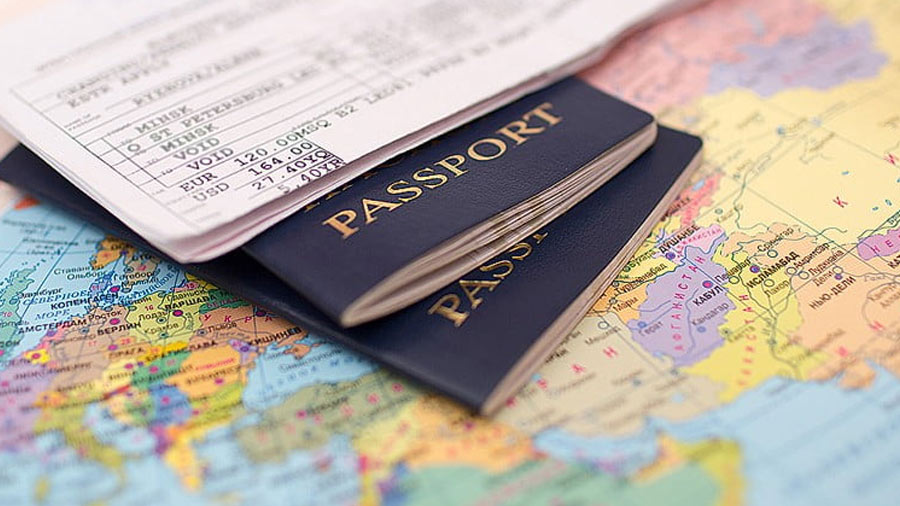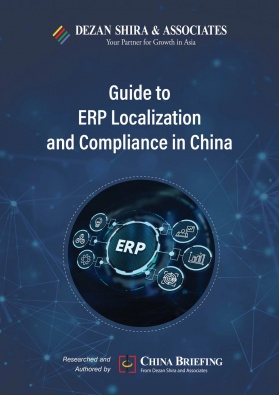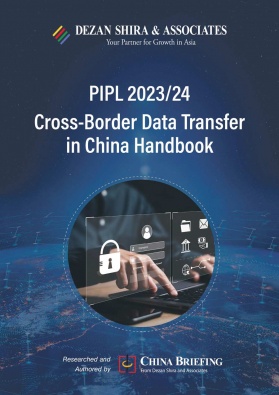China Announces Several Measures to Facilitate Hotel Accommodation for Overseas Personnel
China introduced new measures aiming to simplify hotel accommodations for overseas travelers by removing qualification barriers and enhancing service standards, payment convenience, and registration processes. These changes address previous challenges faced by foreign guests and support China’s broader goals of high-level openness and inbound tourism growth.
On July 25, 2024, the Ministry of Commerce (MOFCOM) and six other departments jointly issued the Notice on Several Measures to Facilitate Accommodation for Overseas Personnel in High-Level Service and Opening Up (The Notice), to address the difficulties faced by inbound overseas travelers regarding hotel accommodation.
This follows up on several foreign travelers from Nigeria and the United Kingdom who left messages on the Chinese government website, reflecting that they were refused when attempting to check in at hotels in China.
In this article, we delve into the proposed measures, the context behind the notice, potential implications, and what to watch for next.
What accommodation facilitation measures are proposed in the Notice?
To solve the issues flagged by overseas travelers, the Notice proposed accommodation facilitation measures in the following eight aspects: operating in compliance with the law, enhancing reception capacity, strengthening industry self-discipline, leveraging platform roles, optimizing registration management, ensuring smooth service channels, improving payment convenience, and fostering a friendly atmosphere.
We summarize the details of the proposed measures below:
| Accommodation Facilitation Measures Proposed in the Notice | |
| Measure | Details |
| 1. Eliminating qualification barriers |
|
| 2. Front desk training and service enhancement |
|
| 3. Enhancing industry self-discipline |
|
| 4. Role of online platforms |
|
| 5. Streamlining accommodation registration |
|
| 6. Enhancing Communication Channels for Overseas Guests |
|
| 7. Improving payment services for foreigners |
|
| 8. Creating a friendly atmosphere |
|
Why have foreign travelers encountered difficulty in finding hotels in China?
Foreign travelers often encounter difficulties when attempting to check into hotels in China. Reasons for hotel refusals include not having the necessary qualifications for foreign guests or not knowing how to input information into the system.
In China, there used to be a rule that only foreign-related hotels, or “涉外酒店” (shè wài jiǔdiàn) can accommodate foreigners. Such hotels refers to accommodation facilities such as hotels, guesthouses, apartments, and resorts that have been approved by various levels of business administration and public security departments to accommodate foreigners, overseas Chinese, Hong Kong and Macau compatriots, and Taiwanese.
However, with the development of inbound tourism, some regions have gradually abolished the requirement for designated accommodation for foreigners. For example, since October 1, 2003, the Beijing Municipal Public Security Bureau has completely lifted the restriction on designated accommodation for foreigners throughout the city. Any enterprise or institution with a hotel business qualification can legally accommodate foreign guests who have completed temporary accommodation procedures.
That said, some regions still impose control requirements on hotels receiving foreign guests. The specific rules and operational practices vary among the relevant departments in the hotel’s location, making it challenging for some hotels to directly accommodate foreign guests without obtaining a tourism (foreign-related) business license.
Meanwhile, foreign tourists still need to go through additional procedures when staying in China. Article 39 of the “Exit and Entry Administration Law of the People’s Republic of China” states: “Foreigners staying in hotels within China’s territory should register their accommodation with the hotel according to relevant regulations on hotel security management and submit registration information to the local public security organ.” And according to Article 6 of the “Measures for the Administration of Hotel Security Management,” hotels must register guests upon check-in. During registration, they should verify guests’ identity documents and accurately record the required information. When accommodating foreign guests, hotels are also required to submit accommodation registration forms to the local public security organ within 24 hours.
Given these administrative requirements, hotels may choose to act cautiously. Some hotels may refuse foreign guests due to perceived inadequacy in their own conditions or qualifications. Reasons for refusal might include unfamiliarity with foreign guests’ needs and habits and concerns about cultural differences and language barriers affecting service quality or leading to misunderstandings. Additionally, some hotels may be limited by inadequate hardware facilities, such as not having an installed public security registration system or lacking connectivity with public security agencies.
The bigger picture
Since 2023, China has announced various favorable policies to boost inbound tourism and promote spending by foreign visitors. One such policy is the increasingly convenient visa-free access. Against this backdrop, China’s tourism sector is witnessing a significant rebound. Official data reveals a remarkable 152.7 percent year-on-year increase in inbound travel, with 14.64 million trips made by foreigners in the first half of 2024. Notably, 8.54 million of these trips were visa-free, marking a 190.1 percent rise. This surge is largely attributed to China’s expanded visa-free scheme, which now includes citizens from 22 countries. Additionally, specific trials for travelers from New Zealand, Australia, and Poland allow them up to 15 days of visa-free entry for business, tourism, and family visits until the end of 2025.
However, despite these positive developments, many foreign tourists face challenges when it comes to accommodation in China. Numerous travelers have reported being denied hotel stays during their visits. These issues have had some negative impact on China’s efforts to promote inbound tourism.
In response to feedback from netizens, the Ministry of Public Security, the MOFCOM, and the National Immigration Administration have taken note of the inconvenience faced by foreign visitors in finding suitable accommodations. They are actively collaborating with relevant industry departments, including the Ministry of Culture and Tourism, to explore measures that address this issue. Importantly, they have emphasized that hotels should not refuse to accommodate foreign guests based on a lack of qualifications for handling international visitors.
These measures were formulated by seven government departments on July 1 and were announced on July 25.
What to watch out for
The joint measures announced by the seven government departments are expected to address the difficulties faced by foreign nationals in finding hotel accommodation.
Among these measures, the provision that “local relevant departments and online platforms should not use qualification requirements as a barrier to restrict accommodation providers from receiving foreign guests” aims to break down previous restriction. This regulation will enable more accommodation providers to host foreign guests while being legally compliant.
However, it is important to note that these measures are at the state level, and their effective implementation will depend on local authorities. Going forward, the MOFCOM, in collaboration with relevant departments, will guide local efforts to implement accommodation-related measures that facilitate a more convenient and friendly environment for foreign visitors. This initiative aligns with China’s commitment to high-level openness and high-quality development.
China Briefing will continue to monitor measures aimed at facilitating travel for foreign visitors to China.
About Us
China Briefing is one of five regional Asia Briefing publications, supported by Dezan Shira & Associates. For a complimentary subscription to China Briefing’s content products, please click here.
Dezan Shira & Associates assists foreign investors into China and has done so since 1992 through offices in Beijing, Tianjin, Dalian, Qingdao, Shanghai, Hangzhou, Ningbo, Suzhou, Guangzhou, Haikou, Zhongshan, Shenzhen, and Hong Kong. We also have offices in Vietnam, Indonesia, Singapore, United States, Germany, Italy, India, and Dubai (UAE) and partner firms assisting foreign investors in The Philippines, Malaysia, Thailand, Bangladesh, and Australia. For assistance in China, please contact the firm at china@dezshira.com or visit our website at www.dezshira.com.
- Previous Article China’s Third Plenum – Key Takeaways for Foreign Investors
- Next Article Hong Kong’s New Patent Box Regime: A 5% Tax Concession for Qualified IP Income



























